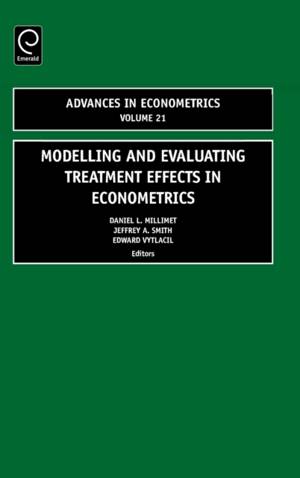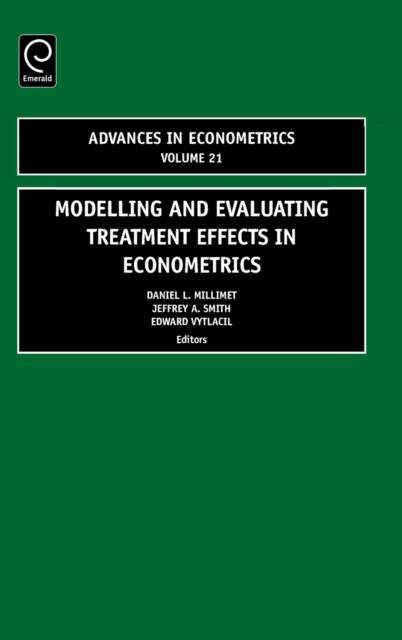
Bedankt voor het vertrouwen het afgelopen jaar! Om jou te bedanken bieden we GRATIS verzending (in België) aan op alles gedurende de hele maand januari.
- Afhalen na 1 uur in een winkel met voorraad
- In januari gratis thuislevering in België
- Ruim aanbod met 7 miljoen producten
Bedankt voor het vertrouwen het afgelopen jaar! Om jou te bedanken bieden we GRATIS verzending (in België) aan op alles gedurende de hele maand januari.
- Afhalen na 1 uur in een winkel met voorraad
- In januari gratis thuislevering in België
- Ruim aanbod met 7 miljoen producten
Zoeken
Modelling and Evaluating Treatment Effects in Econometrics
€ 225,95
+ 451 punten
Omschrijving
The estimation of the effects of treatments endogenous variables representing everything from individual participation in a training program to national participation in a World Bank loan program has occupied much of the theoretical and applied econometric research literatures in recent years. This volume brings together a diverse collection of papers on this important topic by leaders in the field from around the world. Some of the papers offer new theoretical contributions on various estimation techniques and others provide timely empirical applications illustrating the benefits of these and other methods. All of the papers share two common themes. First, as different estimators estimate different treatment effect parameters, it is vital to know what you are estimating and to know to whom the estimate applies. Second, as different estimators require different identification assumptions, it is crucial to understand the assumptions underlying each estimator. In empirical applications, the researcher must also make the case that the assumptions hold based on the available data and the institutional context. The theoretical contributions range over a variety of different estimators drawn from both statistics and econometrics, including matching and other non-parametric methods, panel methods, instrumental variables, methods based on hazard rate models and principal stratification, and they draw upon both the Bayesian and classical statistical traditions. The empirical contributions focus mainly on the evaluation of active labor market programs in Europe and the United States, but also examine of the effect of parenthood on wages and of the number of children on child health. It contains both theoretical and empirical contributions. It includes examples from both Europe and the US.
Specificaties
Betrokkenen
- Uitgeverij:
Inhoud
- Aantal bladzijden:
- 446
- Taal:
- Engels
- Reeks:
- Reeksnummer:
- nr. 21
Eigenschappen
- Productcode (EAN):
- 9780762313808
- Verschijningsdatum:
- 21/02/2008
- Uitvoering:
- Hardcover
- Formaat:
- Ongenaaid / garenloos gebonden
- Afmetingen:
- 157 mm x 229 mm
- Gewicht:
- 725 g

Alleen bij Standaard Boekhandel
+ 451 punten op je klantenkaart van Standaard Boekhandel
Beoordelingen
We publiceren alleen reviews die voldoen aan de voorwaarden voor reviews. Bekijk onze voorwaarden voor reviews.








